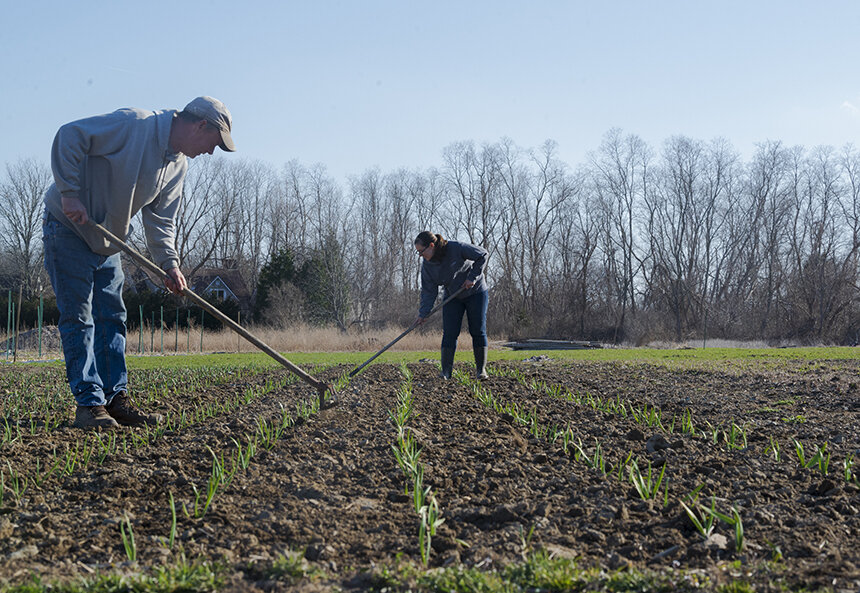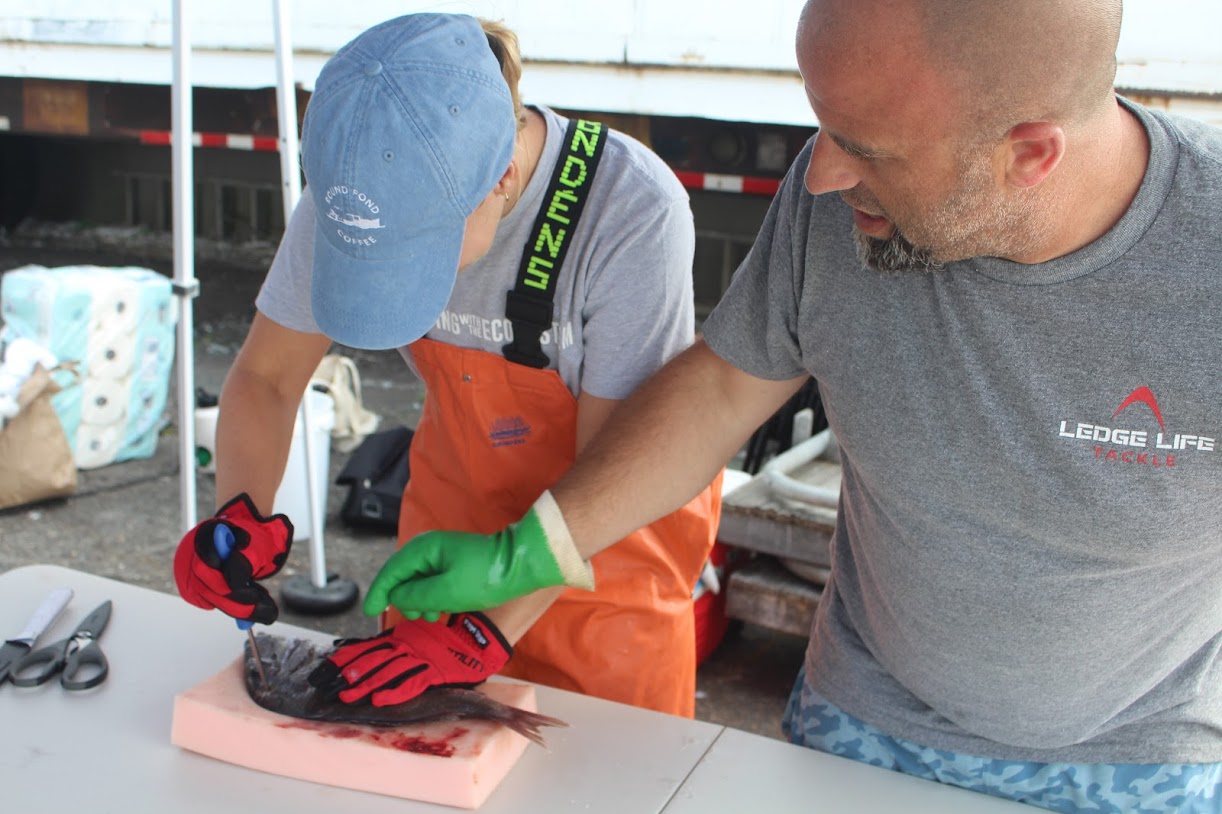Older Farmers Worried About Farming’s Future
April 27, 2016
Rhode Island’s older farmers, 65 and older, manage 21,700 acres, and the collective $310 billion in land and infrastructure they own is going to change hands in one way or another.
A recent study shows most exiting farmers may have no one to take over the farm. Older farmers throughout southern New England want to see their land remain in farming, yet are worried about their ability to retire and find a younger farmer who can afford to buy the land.
Nearly 30 percent of New England’s farmers are likely to exit farming in the next decade or so, and nine out of 10 of them are farming without a young farmer alongside, according to new analysis of U.S. Census of Agriculture data that was part of a study released in April by the American Farmland Trust and Land For Good.
The yearlong study sheds new light on what will be needed to facilitate the transition of farms and farmland to a next generation of farmers. At no point is a farm’s future more at risk than during this transition.
In Rhode Island, farmers 65 and older operate 29 percent of the farms. Of these 363 older farmers, just 11 percent of them have someone younger than 45 managing the farm with them. The study also found that Rhode Island had a 13 percent increase in younger farm operators (45 or younger) since 2002, the only state in New England with a net growth in young farmers since 2002.
“It was a real wake-up call to see how few farmers age 65-plus have a next generation working on the farm with them,” said Cris Coffin, policy director for Land For Good, who directed the study. “How and to whom this land and farm infrastructure transfers will have an enormous impact on the future of farming in New England.”
Based on focus groups with farmers, the study documents that older farmers are concerned about retirement; especially those farmers without a next generation farmer or owner to take over. Farmers also are unsure about how to find a younger farmer who can afford to buy their land. Many also want help to make sound transfer agreements.
More than 90 percent (92 percent) of New England’s 10,369 senior farmers don’t have a farm operator younger than 45 working with them. While this doesn’t mean that these farmers don’t have a succession plan, it suggests that the future of many of these farms is uncertain.
The 1.4 million acres they manage and $6.45 billion in land and agricultural infrastructure they own will change hands at some point. “To keep this land and infrastructure in farming as it transitions, we will need better policy tools and increased support services to exiting and entering farmers,” Coffin said.
The study used Census of Agriculture data (2002, 2007 and 2012) and looked at characteristics of farmers in New York and the six New England states, including those at or beyond retirement age and those young or new to farming. In all seven states, both organizations conducted focus groups of older farmers who self-identified as having no farm successor. The goal was to learn more about what these farmers are farming and with whom, their vision of retirement, and what challenges they see for the future.
“Some senior farmers may have a plan for their farm’s future,” said Jesse Robertson-DuBois, New England director for the American Farmland Trust. “But we learned through this study that many do not. A large number of older farmers are worried about their ability to retire and to find a younger farmer who can afford to buy their land.”
Older farmers who participated in the focus groups all want to see their land remain in farming, though most see financing and future economic viability for younger farmers as an obstacle. Farmers identified their needs for help to navigate the complex process of choosing the right succession strategy and finding a suitable successor. Many also want technical assistance on specific aspects of farm succession and transfer.
Here is a look at some farming statistics for southern New England, courtesy of the study:
Connecticut: Farmers age 65 and older operate 32 percent of the state’s farms. Of these 1,892 senior farmers, just 7 percent of them have someone younger than 45 managing the farm with them. Connecticut had 10 percent fewer young (younger than 45) farm operators in 2012 than in 2002. Farmers age 65 and older manage 137,000 acres and own a collective $1.6 billion in land and agricultural infrastructure.
Massachusetts: Farmers age 65 and older operate 30 percent of the state’s farms. Of these 2,333 senior farmers, just 8 percent of them have someone younger than 45 managing the farm with them. Massachusetts had 16 percent fewer young (younger than 45) farm operators in 2012 than in 2002. Farmers age 65 and older manage 184,000 acres and own a collective $1.8 billion in land and agricultural infrastructure.
Rhode Island: Farmers age 65 and older operate 29 percent of the state’s farms. Of these 363 senior farmers, just 11 percent of them have someone younger than 45 managing the farm with them. Rhode Island had a 13 percent increase in young (younger than 45) farm operators since 2002. Farmers age 65 and older manage 21,700 acres and own a collective $310 million in land and agricultural infrastructure.
Categories
Join the Discussion
View CommentsYour support keeps our reporters on the environmental beat.
Reader support is at the core of our nonprofit news model. Together, we can keep the environment in the headlines.
We use cookies to improve your experience and deliver personalized content. View Cookie Settings



